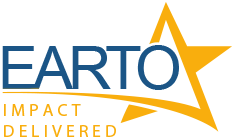17 / 05 / 2023
EARTO Answer to the EC Consultation on Towards a Secure and Sustainable Critical Raw Materials Supply for Europe
EARTO welcomes the European Commission’s proposal for a regulation to establish a Framework for ensuring a secure and sustainable supply of Critical Raw Materials and the accompanying Communication. EARTO members are ready to contribute to the definition and subsequent implementation of the Critical Raw Materials Act (CRMA), and put forward the following key messages:
- The CRMA must facilitate a systemic change to deliver on its goals. They can only be achieved to their full extent based on cutting-edge research and innovation: The CRMA signals the need for a systemic change. Its strategic goals should be aligned with transforming the manufacturing sector to steer clear of additional supply dependencies beyond Europe.
- A stable long-term investment in research and innovation is key for an impactful and timely fulfillment of the CRMA: To address European materials resilience, the subject of R&I on materials substitution should be prioritised to industrial sectors where it meets the lowest technology and cost barriers. Material substitution to cheap, abundant, and non-critical materials requires to develop relevant recycling technologies combined with the design of sustainable and highly efficient recycling solutions for corresponding future low-value waste.
- Public awareness and acceptance need to go beyond public consultation processes: EARTO appreciates the promotion of public awareness and acceptance as stated in the EC Communication. It is indispensable to provide solid scientific evidence and success stories to highlight how technologies, processes, and business models deliver solutions for society’s biggest challenges.
- Resilient CRM supply for Europe must build upon sustainable partnerships with third countries: The proposed regulation defines ambitious targets for the supply chain. They can only be achieved if the supply chain is monitored and analysed in its entirety, with the involvement of all relevant stakeholders in compliance with high sustainability standards. We need to ensure a balanced monitoring process and response mechanisms to possible bottlenecks in the supply chain.
- Skills are the currency of the transition towards a secure and sustainable CRM supply: The materials transition hinges on access to a specialised and highly skilled workforce. Frequent “brain exchange” between RTOs and industry brings both sides closer together and bridges the gap between disciplines and knowledge along the whole TRL scale. RTOs strongly contribute to on-the-job training at the forefront of industry’s technology needs.
Read the full paper and further recommendations here

